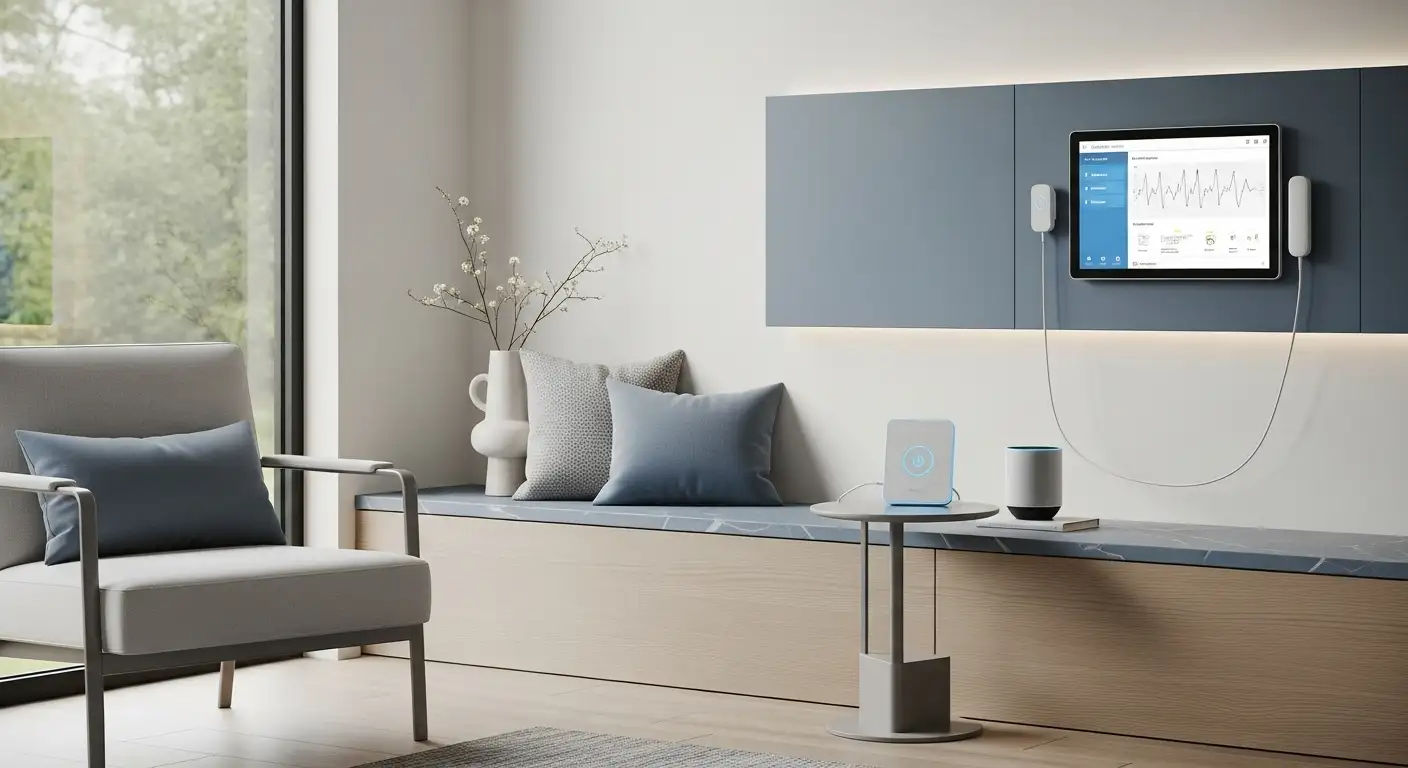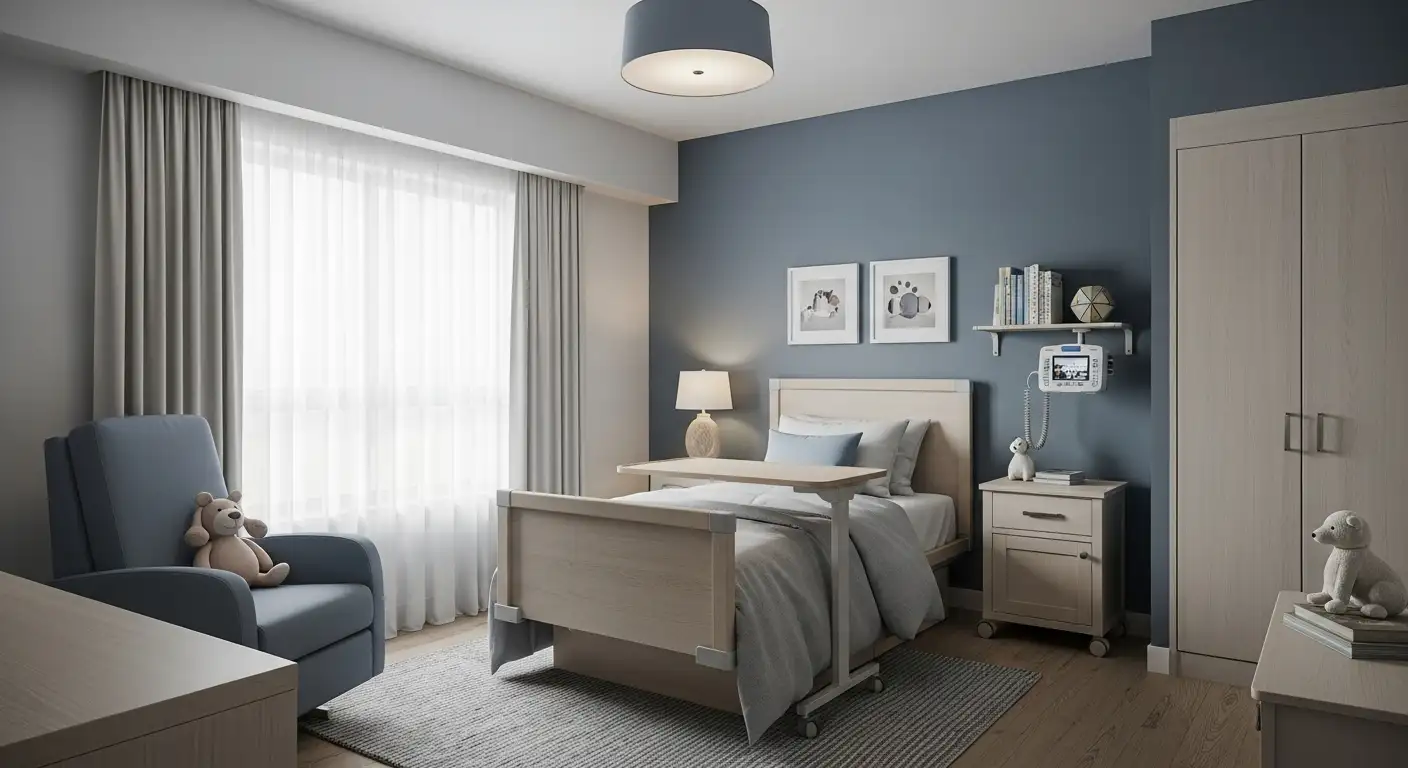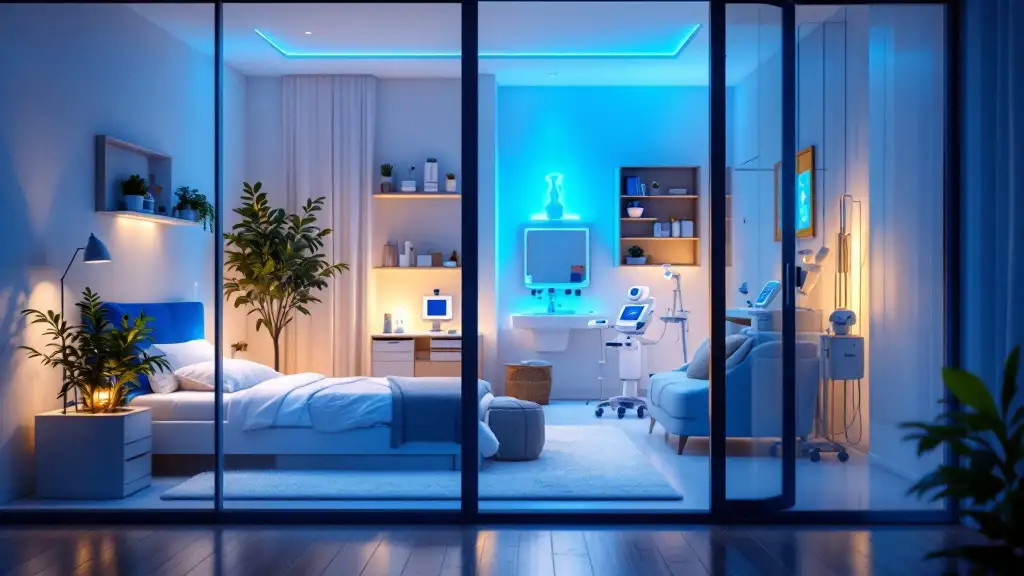Understanding Smart Home Technology
Smart home technology encompasses a variety of Internet-enabled devices designed to improve comfort, safety, and management for inhabitants. These technologies integrate sensors and machine learning within the home, offering significant advantages for seniors and their caregivers.

Advantages of Smart Home Tech
Smart home technologies are crucial for enabling seniors to age in place safely and independently. They provide solutions that enhance security, promote autonomy, and improve health outcomes. According to Age Safe America, implementing these technologies can offer peace of mind for both seniors and their families, making daily life more manageable.
Some of the key advantages include:
AdvantageDescriptionEnhanced SafetyFeatures such as emergency response systems and monitoring devices ensure quick assistance when needed.Improved IndependenceSeniors can manage daily tasks without relying heavily on others, maintaining dignity and autonomy.Health MonitoringDevices that track vital signs help manage chronic conditions effectively, reducing the need for frequent doctor visits.Energy EfficiencySmart devices can optimize energy use, which is beneficial for both the environment and household expenses.
Personalizing Smart Home Solutions
The implementation of senior-friendly smart home technologies must be tailored to meet the unique needs and preferences of each individual. Customization ensures that the benefits of these innovations are fully realized, significantly enhancing the quality of life for seniors [1].
Personalization can include:
With thoughtful integration, smart home technology can support seniors in keeping their independence while enhancing their overall living experience.
Smart Health Monitoring Devices
Smart health monitoring devices are essential tools in promoting the well-being of seniors, particularly those choosing to age in place. These technologies play a vital role in ensuring the health and safety of older adults who wish to maintain their independence while still receiving the support they need.
Importance in Senior Care
The significance of smart health monitoring devices in senior care cannot be overstated. These devices assist in tracking vital signs such as heart rate, blood pressure, and oxygen levels, providing critical data that can lead to timely medical interventions. They also serve as a reminder for medication schedules, ensuring that seniors adhere to their prescribed treatments [1].
FeatureFunctionVital sign monitoringTracks heart rate, blood pressure, and moreMedication remindersAlerts seniors when it's time to take their medsActivity trackingMonitors physical activity levelsEarly detectionIdentifies potential health issues early
The overall aim of these technologies is to enhance seniors' ability to live independently while providing peace of mind for both them and their caregivers.
Benefits for Independent Living
Smart health monitoring devices contribute significantly to independent living for seniors. By providing real-time health data and alerts, these devices enable seniors to manage chronic conditions effectively and maintain their overall health. They also facilitate communication between seniors and healthcare providers, making it easier to address health concerns proactively.
The benefits of using these devices extend beyond health monitoring. They help seniors feel empowered and in control of their health, fostering confidence in their ability to live independently. In addition, family members can have access to information about their loved one's health, ensuring they are informed and able to assist when necessary.
Using smart home technology also supports the management of chronic conditions, making everyday life easier and more secure for older adults. For further information on managing chronic diseases, consider reading our article on senior-specific pain management.
Overall, smart health monitoring devices play a crucial role in the landscape of senior-friendly smart home technology, making living independently safer and more manageable for seniors.
Home Automation Systems for Seniors
Home automation systems can greatly enhance the quality of life for seniors. By integrating technology into daily routines, these systems simplify tasks, improve comfort levels, and provide crucial safety features.
Enhancing Home Comfort
Home automation systems significantly improve overall comfort for elderly individuals. These systems often include features such as smart lighting, climate control, and appliance management, which can be controlled remotely or automated based on user preferences.
FeatureDescriptionSmart LightingAdjusts brightness, color, and schedules for optimal lighting conditions.Climate ControlAutomatically maintains temperature settings for comfort.Appliance ManagementControls devices like ovens, coffee makers, and refrigerators for convenience.
Smart refrigerators, for example, can track food items and notify users about expiry dates, ensuring that seniors always have fresh groceries available [2]. This feature reduces the cognitive load on seniors and assists with meal preparation.
Improving Safety and Security
Safety is a vital concern for seniors living alone. Home automation systems provide peace of mind through enhanced security features. Systems can include smart locks, surveillance cameras, and alert systems to monitor activities within the home.
Security FeatureDescriptionSmart LocksAllow remote access or locking capabilities, reducing the need for physical keys.Surveillance CamerasProvide real-time video feeds and alerts for unusual activities.Location TrackingFor seniors with cognitive impairments, wearable tracking devices can alert caregivers of irregular activities or exiting predefined safe zones [2].
These systems not only deter potential intruders but also help caregivers monitor the well-being of seniors. Automating home tasks can help seniors maintain independence while ensuring they are safe. Home automation systems represent an effective solution within the broader context of senior-friendly smart home technology.
Overall, integrating smart home solutions aids in creating a more comfortable and secure living environment for older individuals. The combination of convenience, monitoring, and safety can significantly enhance the quality of life for both seniors and their caregivers.
Chronic Disease Management
Role of Smart Homes
Smart home technologies play a vital role in managing chronic diseases among the elderly. These innovative solutions include smart health monitoring devices, emergency response systems, and home automation tools that significantly enhance the safety and independence of seniors living alone. According to Age Safe America, such technologies facilitate independent living by providing seniors with the autonomy they need while ensuring their health and safety are closely monitored.
Smart health monitoring devices are essential for tracking vital signs, managing medication schedules, and even monitoring physical activity. These devices aid in early detection of health issues, ensuring timely medical intervention when necessary. For seniors with chronic conditions, this means a better quality of life and improved health management. The integration of telemedicine services with smart technology also enhances personalized healthcare, allowing for monitoring without the need for frequent hospital visits [3].
Smart TechnologyRole in Chronic Disease ManagementHealth MonitorsTrack vital signs and symptomsMedication RemindersAid in adherence to medication plansEmergency SystemsProvide immediate assistance in case of health issuesTelemedicineFacilitate remote healthcare consultations
Supporting Older Individuals
The adoption of smart home technology supports older individuals in multiple ways. It not only helps in monitoring chronic conditions but also promotes overall well-being by allowing seniors to maintain their independence. Studies indicate that smart homes can effectively manage various health outcomes, including falls and daily living activities, thereby enhancing the quality of life for older adults [3].
These technologies are designed to be user-friendly, making it easier for seniors to engage with them. Moreover, the psychological support offered by knowing they have technology to assist them can significantly reduce anxiety related to living alone. This empowerment leads to increased confidence, and ultimately, a greater ability for seniors to manage their chronic diseases within the comfort of their own homes.
In summary, senior-friendly smart home technology serves as an invaluable resource in managing chronic diseases, assisting elderly individuals in leading healthier and more independent lives. By investing in such technologies, caregivers and seniors can ensure a safer living environment conducive to long-term health.
Factors Influencing Acceptance
Adopting senior-friendly smart home technology involves various factors that can impact how well these solutions are received by elderly users. Understanding these considerations and ethical implications is crucial for effective implementation.
Considerations for Implementation
When implementing smart home technologies for seniors, several key factors should be taken into account:
FactorInfluencePerceived UsefulnessHighPerceived Ease of UseHighIntergenerational SupportModerateRisk PerceptionHigh
Ethical Implications
The introduction of smart home technologies for older adults must also consider ethical implications. Key aspects include:
Exploring these factors and ethical considerations can aid in developing and implementing senior-friendly smart home technology that is efficient, comfortable, and respectful of the needs and rights of elderly individuals. For more information on specific technologies, consider visiting topics such as senior-specific pain management or age-related hearing loss solutions.
Innovative Senior-friendly Devices
As the landscape of elderly care evolves, innovative senior-friendly smart home technology offers solutions that enhance the quality of life for seniors. Two notable categories of these devices are robotic assistance and smart security systems.
Robotic Assistance
Robotic assistance technology is making significant strides in supporting older adults with daily tasks. These smart devices can perform a variety of functions, from simple household chores to more complex assistance.
Features of robotic assistants include:
The integration of robotic assistants into daily living helps seniors maintain their independence while ensuring that essential tasks are completed. These devices can provide peace of mind for caregivers, knowing that assistance is available when needed.
Smart Security Systems
Smart security systems are crucial in enhancing safety for seniors living alone. These systems include doorbells, alarms, cameras, and sensors that effectively monitor home environments for suspicious activity.
Device TypeFunctionalitySmart DoorbellsAllow for remote monitoring of visitors and package deliveries.Motion SensorsDetects movements and can alert caregivers in case of falls or suspicious activity.Surveillance CamerasOffers real-time streaming for family members to view the home remotely.Smart AlarmsInstantly notify authorities during emergencies or unusual events.
Smart security systems provide caregivers and family members the ability to monitor seniors remotely, ensuring their safety and well-being. For emergencies, smart speakers like Google Home and Amazon Echo can recognize commands like ‘help’ or ‘call 911’, immediately connecting seniors with emergency services.
Additionally, advanced alarm systems can monitor homes from any location through smartphone applications. They offer alerts for potential risks, such as falls or breaks-ins, ensuring seniors feel secure in their own homes [2].
By employing these innovative solutions, elderly individuals can enjoy enhanced security and support in their daily lives, which is vital for maintaining independence and peace of mind. The integration of technologies not only aids in everyday tasks but also provides caregivers critical information and reassurance about their loved ones' safety.
References
[2]:
[3]:
[4]:
[5]:
[6]:



